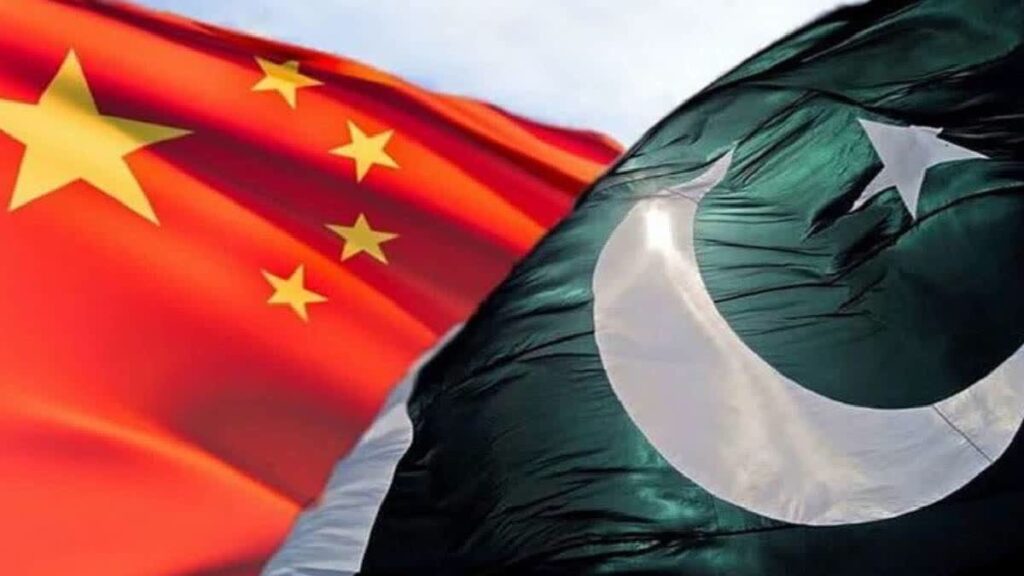
The latest controversy surrounding the Karachi Port Trust’s (KPT) dredging contract exposes a dangerous pattern of compromised procurement processes and questionable decision-making that continues to plague Pakistan’s infrastructure projects. The ongoing story of the port’s dredging contract not only highlights institutional corruption but also raises serious concerns about the country’s increasing economic subordination to Chinese interests at the expense of transparency and national benefit. In July 2024, KPT initiated what appeared to be a standard competitive bidding process for dredging 4 million cubic meters of its navigation channel, attracting four international companies. Three reputable international bidders, Jan de Nul from Belgium, NMDC from UAE, and Van Oord from Netherlands – submitted proposals featuring high-capacity equipment exceeding 15,000 cubic meters, aligning with the project’s demanding technical requirements and tight 120-day completion deadline.
However, the fourth bidder, China Harbour Engineering Company (CHEC), proposed clearly inadequate equipment that failed to meet the basic technical specifications. The initial technical evaluation committee, recognizing these shortcomings, rightfully disqualified CHEC. This decision was based on sound engineering principles, acknowledging that underpowered equipment would compromise both the project timeline and quality standards – crucial factors for a port that handles billions in national trade. What followed next reveals the deeply entrenched problems within Pakistan’s procurement system. In a stunning reversal that defies logic and professional integrity, the final evaluation report suddenly deemed CHEC eligible and qualified, simply because it emerged as the lowest bidder. This decision not only contradicts the initial technical assessment but makes a mockery of the entire procurement process. The fact that CHEC was even allowed to modify its financial bid after technical disqualification adds another layer of impropriety to this already questionable process.
The Public Procurement Regulatory Authority’s (PPRA) intervention highlights the severity of these violations. Their rebuke of KPT for failing to issue a complete technical evaluation report or provide justification for its decisions underscores the opacity of the process. More troublingly, KPT’s response that they withheld the technical report after “consultations” with CHEC raises serious questions about collusion and preferential treatment. This case exemplifies a broader and more worrying trend in Pakistan’s infrastructure development that is the systematic favoritism shown to Chinese companies at the expense of technical competence and national interest. The port’s dredging is not merely a routine maintenance task; it is crucial for ensuring that large vessels can safely access one of Pakistan’s primary maritime gateways. Compromising on technical standards for short-term financial savings is not just myopic; it’s potentially dangerous.
The KPT’s apparent willingness to overlook technical inadequacies and bend procurement rules reveals how Pakistani institutions are increasingly susceptible to pressure that favors Chinese companies, regardless of their technical merit. This practice not only undermines fair competition but also perpetuates a cycle of dependence on substandard solutions that ultimately cost the nation more in the long run. KPT’s claim that the matter is “still being processed” rings hollow given the documented attempts to manipulate the procurement process. The authority’s communication with PPRA reveals a disturbing lack of transparency and accountability, with their justification for withholding the technical evaluation report being particularly problematic. Their argument that public disclosure would reveal “sensitive competitive information” stands in direct contradiction to basic principles of public procurement transparency.
This controversy serves as a reminder of how Pakistan’s institutional weaknesses are being exploited to further entrench Chinese economic interests in the country. While Chinese investment and partnership can be beneficial when conducted on equal terms with proper oversight, the current pattern of compromised bidding processes and technical standards represents a form of economic colonization that undermines Pakistan’s long-term development prospects. The ramifications of such compromised decision-making extend far beyond this single contract. Every time technical standards are sacrificed and procurement rules are bent to favor particular bidders, it sends a clear message to the international business community about the challenges of operating in Pakistan. This not only discourages high-quality international companies from participating in future projects but also perpetuates a cycle of declining standards and increasing dependence on a single foreign partner.
As Pakistan grapples with economic challenges and seeks to modernize its infrastructure, it cannot afford to compromise on technical standards or transparency in public procurement. The KPT dredging contract controversy should serve as a wake-up call for policymakers and oversight bodies. Without immediate reform and strict enforcement of procurement rules, Pakistan risks not just its infrastructure quality but its economic sovereignty. The nation’s ports, being crucial gateways for international trade, deserve better than becoming pawns in a game of compromised contracts and lowered standards.






